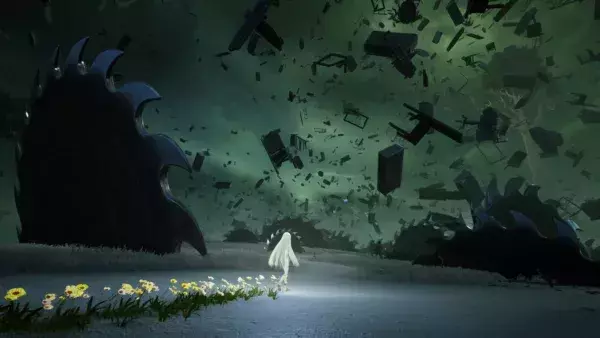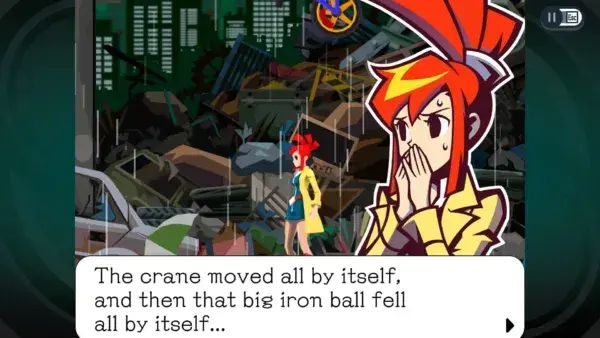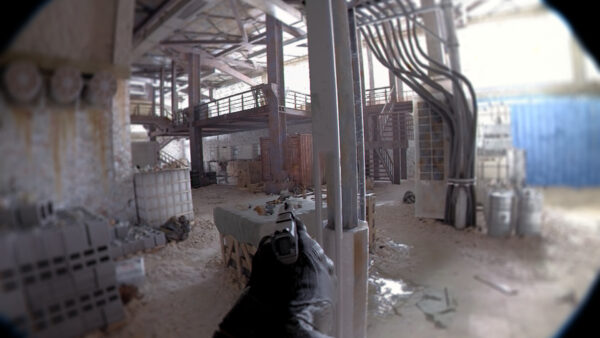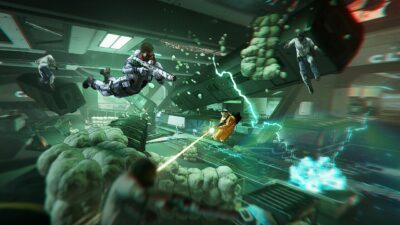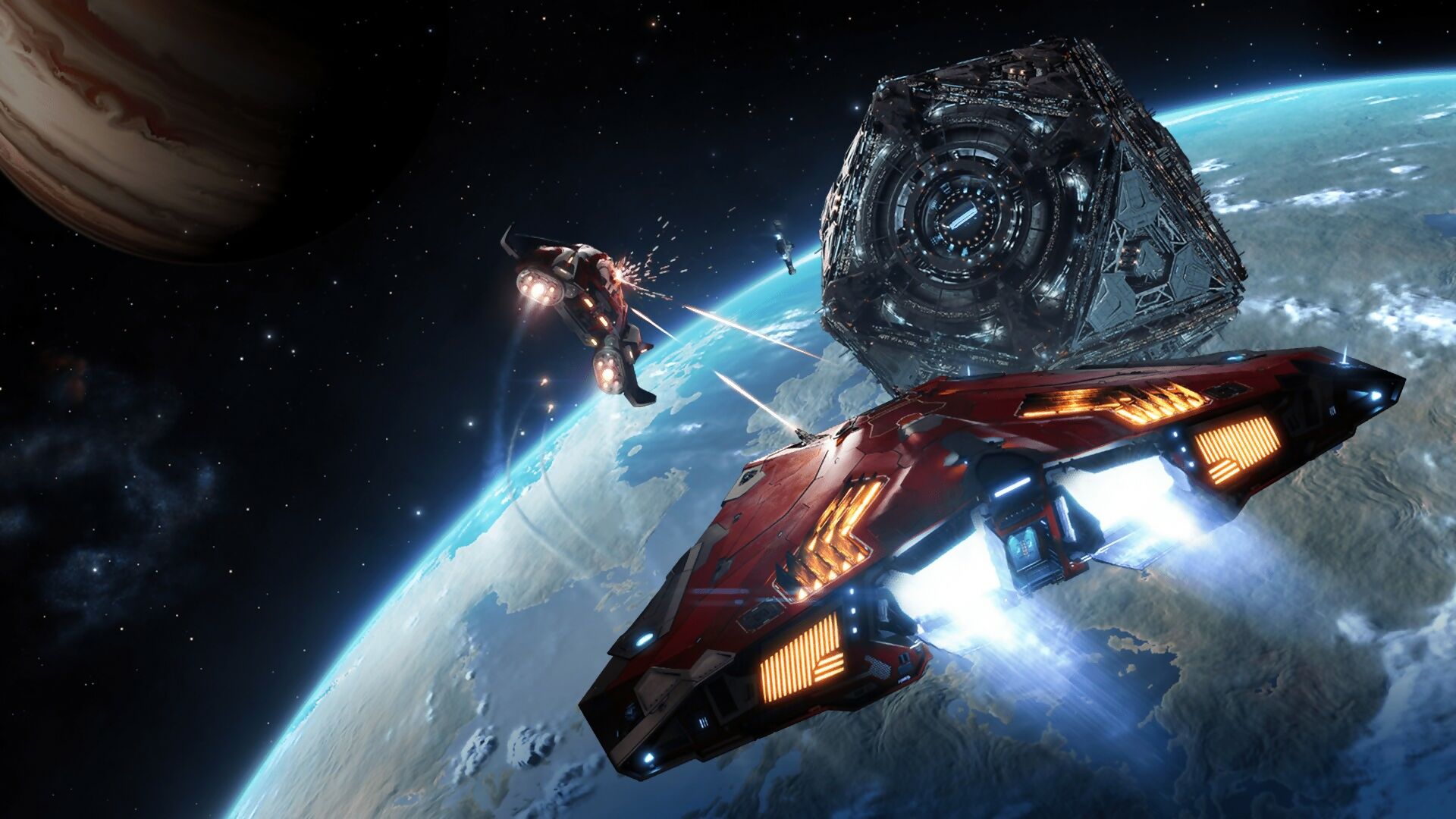
In the magnificently space-ful issue 40 of Wireframe (available here), we’re all over the stars looking at games set in and around the big black void.
We also wanted to take a look at the entire history of space games – or at least a potted version (the entire history would be many magazines’ worth of space, I’m sure). So here that is. Read on, dear spacefaring (sort of) reader! Part 2 covers the period from 2000 to the modern day – part 1 can be found here.
NO ONE CAN HEAR THEM: 2000 – 2011
So it was we entered uncharted space – a world of space games where there was still the passion, but the support had left it all behind. There were dalliances – Homeworld got a sequel in 2003, but sales were poor. Chris Roberts moved on from Wing Commander to make Starlancer in 2000, but it was… well, more Wing Commander, really, and the market just didn’t care.
By the time the more Elite-like and ambitious Freelancer made it out in 2003, few were still paying attention – even Roberts had left his own studio while it was still making the game.

Freelancer saw delays and has been lost in the mix somewhat, but was a good game.
It wasn’t for the want of trying that the space genre went into this dark period. There was just no big publisher interest, which led to more projects being smaller in scale or hobbyist pursuits, so quality was often lacking, or things were rough around the edges. Most impact likely came from the fact the marketing spend no longer told gamers this was the genre they had to play. No, we were all-in on terrestrial-based first-person shooters by this point.
As such, it was no surprise to see, say, Nexus: The Jupiter Incident receive a positive critical reception and sell very few copies. Nor was it too unexpected to see the wildly ambitious X series, first releasing in 1999 but seeing numerous follow-ups and sequels through the 00s, never quite hitting the same level as Elite that it so clearly wanted to.
The mainstream did get the odd look-in, of course, with the Star Wars prequel trilogy producing the Starfighter games; knockabout, fun little arcade shooters, but you could tell the big money just didn’t care by this point.

EVE Online is hard to get into, but a legend for all the right reasons.
All through these dark years, though, there were rays of light – things that had the ambition and quality, even if they didn’t quite have the audience or major publisher attention. But they were the examples that led the way, and showed the space game wasn’t quite dead just yet. It was a slow start, but EVE Online launched in 2003 and proved to be one of the most resilient MMOs ever made, mixing an intricate system of trade, war, and politics to utterly beguiling effect.
The Galaxy on Fire games on mobile offered a peek at what we could have been playing on home formats would publishers give a bit of money to help the ideas come to fruition. Galactic Civilizations showed that the efforts of Master of Orion weren’t in vain. And the FreeSpace 2 modding community – with the game’s source code released in the early 2000s – continued pumping out high-quality (though again, rough around the edges), fan-made content. There was still some interest; still an audience – it would just have to be approached directly.
BEGIN AGAIN: 2012 – 2014
Kickstarter wasn’t new in 2012. The space game subgenre certainly wasn’t fresh at that point. But just as David Braben and Ian Bell had brought disparate elements together into one fantastic package in 1984’s Elite, so did Braben and some other folk at Frontier Developments bring together the desire of the people with the ability to raise some cash and the proven track record for making stuff where you’re in space and it’s all great and that: Elite Dangerous launched on Kickstarter in November 2012.
Was this the catalyst? Probably not by itself. Star Citizen had hit a month earlier on Kickstarter, marking Chris Roberts’s first return to gaming since he left the industry before Freelancer was finished. It was another bump in the right direction, and the wildly popular crowdfunding project behind the game showed there was still an appetite there for space games; it had just been – forcefully – suppressed for a time. But going directly to the people produced more truths than anything else, and from 2012 space became cool again.

FTL: the poster child of both indies and crowdfunded games.
Or was it from 2011? Given a certain Kerbal Space Program first publicly released back then, there’s an argument for it. Continued development on the then-beta version of the game carried on for years, and the fervent fan base continued to grow in a manner similar to that of a hastily constructed ultra-rocket in the game itself.
A smaller Kickstarted hit, FTL: Faster Than Light, released later in 2012 and brought with it another new-old mechanic in the form of roguelike elements (as well as a truly special soundtrack). Space Engineers launched in Early Access, piggybacking off Minecraft-mania and layering on a thick, black load of… well, space. X Rebirth brought back Egosoft’s attempt to ape Elite and… well, no, that one was an abject failure.

It’s not just about flying, as Space Engineers showed.
But momentum was building – thanks in part to the influence of going direct; via crowdfunding, but also through the ever-improving output of the independent scene and the increasing ease at which any player could get any game, anywhere. We also started seeing space games – gorgeous shiny ones, no less – make their way back to the consoles in a big way, with the likes of Strike Suit Zero slaking the desires of those in PS4- and Xbox One-land by 2014.
With hopes high for Star Citizen to get out there in the next year or two, public sentiment was at a high when Elite Dangerous did finally release in 2014. It saw some teething troubles, and there were modern quirks to work out (like a lack of offline single-player mode), but this was it: the space game was back in a big way, it had the rapturous applause welcoming it, and it had a fair bit of money behind it too – whether the publishers and marketeers expected it or not.
BOLDLY GOING BACK: 2015 – TODAY
The 2015-to-now thing can be summed up with one series. In 2015 we got Rebel Galaxy, a decent, quirky little blend of missions and combat, western themes, and twangy music. Rough around the edges, but with real heart behind it. In 2019 we got Rebel Galaxy Outlaw, which is, frankly, a bit of a hidden gem. Why does this sum up the modern era? Well, because they just keep coming.
No Man’s Sky brought the hope – and hype – of a previous generation back to the realm of space games, and while it took a while to really hit its stride, has become something of a modern classic in the sort-of genre. Astroneer, meanwhile, took its inspiration more from Minecraft to create its own take on the exploit-and-explore-’em-up.

It takes a bit to unlock, but Astroneer allows for some planet-hopping.
The small-scale indie was represented with the likes of Heat Signature, one of the finest mixes of lonely spacefaring and anecdote-building action yet seen. There’s even the advent of consumer VR to consider, which has seen the likes of House of the Dying Sun and EVE: Valkyrie bring those Last Starfighter dreams we all had to life.
Endless Space took 4X strategy to new heights, then Stellaris popped up and said ‘Yeah, I can do that, too’. Those looking for less blasting, more mystery, and a hell of a lot more contemplation got their fix with Outer Wilds, an absolutely great game and deserved award-winner (including a BAFTA for best game).
The (space) emperor had indeed found his groove again, and it’s not looking like a flash in the pan, either – we’ve a more robust foundation for developers than ever before, as shown through the likes of this issue’s cover star, EVERSPACE 2, being made by a German indie thanks to the help of a Kickstarter campaign. Meanwhile, Kerbal Space Program 2 is being funded by Take-Two, one of the world’s biggest publishers. We’re still waiting on Star Citizen, mind.

Hey look, it’s Star Citizen! With absolutely no further comment made.
And so, here we are. Boldly going where we thought we were going before, but then ended up not going, but then it turned out we are going there after all: a world where the space game is a huge aspect of modern gaming.
Be it brain-off arcade fun, pure simulation, or the liberating joy of living the life of a space pirate (with a heart of gold, naturally) and taking cargo delivery jobs for hours on end, there are options for all, and the quality of the space games out there right now is the best it’s ever been.


